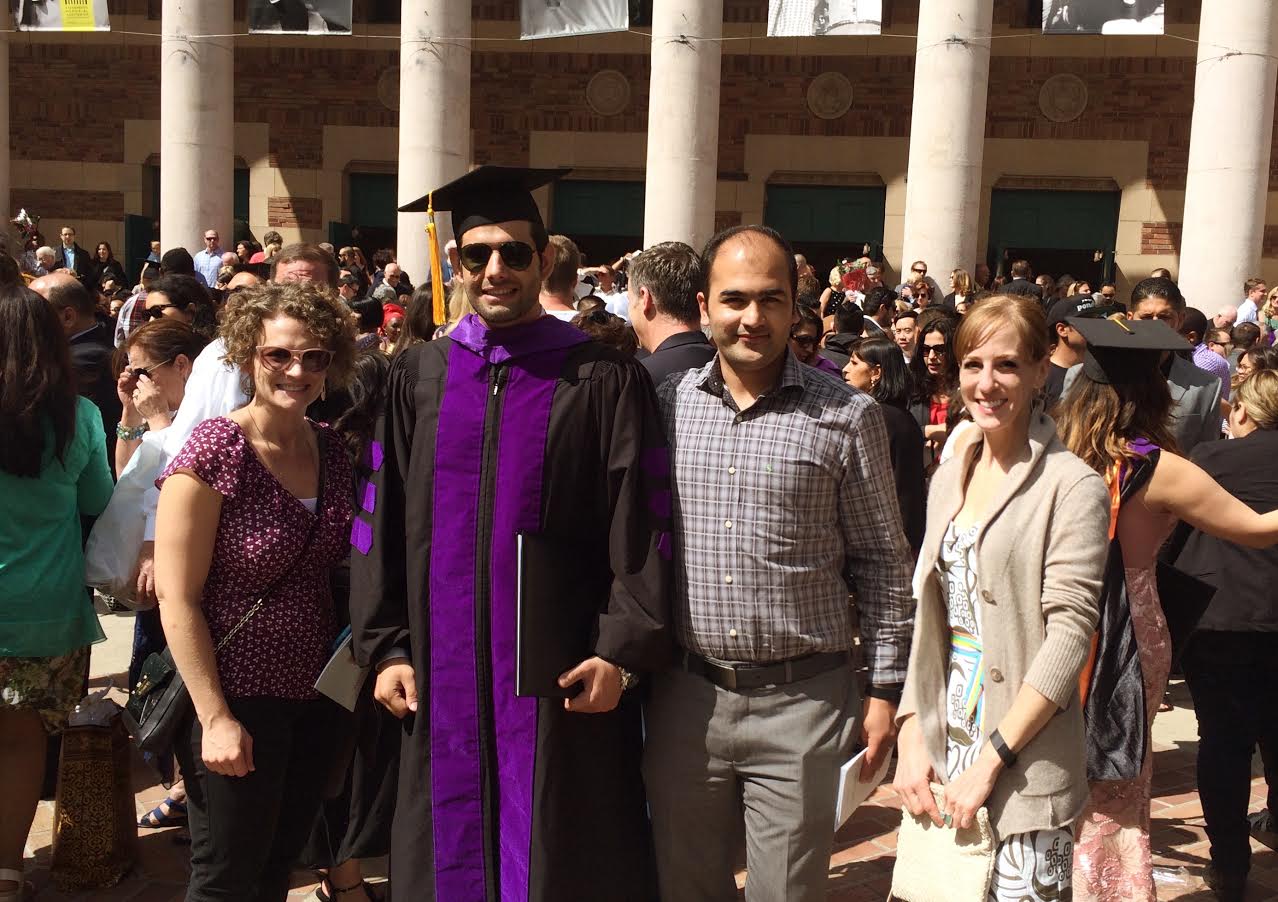From Afghanistan to the United States: A Legal Education Continued
June 14, 2016
Students in Afghanistan who are interested in studying law have historically had few quality legal education opportunities within their home country prior to the creation of the BA-LLB (Bachelor of Arts and Law) degree program at the American University of Afghanistan (AUAF). Known for its strong emphasis on developing comprehension, communication and critical thinking skills, the law curriculum at AUAF readies students for success after graduation, whether they choose to enter the job market right away in Afghanistan or abroad or to pursue further education. Three AUAF graduates opted to extend their legal studies and come to the United States to attain their LL.M degrees. Waris Hakim Syal, Ali Hasanzada and Nafay Khaleeq share their education goals, career aspirations and the challenges of adjusting to life in the United States.
Waris, Ali, and Nafay are all graduates of the AUAF Class of 2015, although different paths brought each of them to the American University of Afghanistan. Waris is originally from Kandahar, the second-largest city in Afghanistan and a major cultural and trading center. He graduated from Zahir Shahi High School in 2010 where he received a scholarship to study at AUAF.
Nafay’s path to AUAF was a more tumultuous experience, although not an uncommon one for many Afghans during the country’s war-ravaged 1990s. He and his family were forced to flee Afghanistan during Taliban rule. He grew up in Pakistan where he studied at an Afghan school for refugees until returning to Afghanistan in 2010 to work as a shopkeeper with his brother. With his cousin’s encouragement, Nafay took and passed the AUAF placement exam and soon after moved to Kabul to enroll into classes.
Unlike his two classmates, Ali was already a seasoned graduate student when he applied to AUAF: he attained his medical degree in Afghanistan before deciding to pursue his law degree. His interests, however, lie in collaborating with lawyers, NGOs, government officials, and other stakeholders to develop rule of law in Afghanistan. Ali’s LL.M program concentration at Ohio Northern University is in Rule of Law and Democratic Governance. A degree from the United States brings needed credibility, Ali says, especially given his interests in pursuing a career in politics.
Ali’s focus of study is in creating a bottom-up approach to improving rule of law in post-conflict countries. He believes that strengthening rule of law is best achieved by changing human behavior rather than focusing on government agencies or infrastructure projects. He is researching how specialized workshops educating people on the significance of rule of law can in turn change perspectives on accountability and issues like corruption, justice and human rights.
Waris and Nafay are both drawn to disciplines related to business law. Waris Hakim Syal recently completed his LL.M at the University of the Pacific McGeorge School of Law with a focus on Transnational Business and Practice. Eventually, he plans to return to Kandahar to work with Kandahar University law faculty and students to encourage and prepare others for scholarships to come to the United States to complete their LL.M as he did.
Nafay is specializing in International Business and Trade Law at Fordham University. While he initially plans to work with an NGO in Afghanistan, Nafay shares Waris’ desire to eventually return to Afghanistan to teach. Appreciative of the opportunities afforded to him as a graduate of AUAF, Nafay believes that teaching at schools like AUAF would be the best way to contribute to his home country. “I want to change the way students think and to help train future leaders,” he said. “I want to encourage students to think for themselves and to question things.”
Waris, Nafay, and Ali all agreed that AUAF was successful in preparing them for the style of teaching used here in United States. Many AUAF faculty are American-educated and utilize Western teaching tactics such as the Socratic method in the classroom. Courses are taught in English and assignments and research papers adhere to similar requirements and standards used in the United States. Especially compared to their international classmates, the AUAF graduates feel more comfortable with volunteering to speak in class, responding to peers and professors, writing papers, and taking exams.
The bigger challenge, instead, lies in acclimating to life outside the classroom walls. Waris noticed that American students balance full schedules far more than students in Afghanistan: “Students are always busy, and if they do not have something to do they try to find something and make themselves busy.” Nafay noted how students in New York City are constantly on-the-go, a striking contrast to his experience in Afghanistan where he was content to spend so much of his time around extended family and a large group of close friends. “In Afghanistan, we came together to create a feeling of being home wherever we were.” Nafay explained.
While they all enjoy the academic rigor of their programs, Waris, Ali, and Nafay are each unhesitant about returning to Afghanistan after completing their studies. They face the complex task of developing a young Afghan legal system based on laws drafted within the past two decades and a Constitution enacted in 2004. Yet they are optimistic. After all, they know firsthand the importance of an effective legal education to the country’s future.

